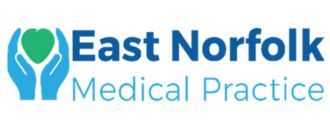Some services provided are not covered under our contract with the NHS and therefore attract charges.
- The fees charged are based on the British Medical Association (BMA) suggested scales and our reception staff will be happy to advise you about them along with appointment availability.
FAQs
Why does my doctor charge fees?
This takes time and is not always straightforward or simple to complete. Some of the information is not available easily and will mean the doctor has to sort and select the right information for the request.
The doctor also must establish who is funding this work and if it is not part of their NHS work, agree a fee for this.
Surely the work is paid for by the NHS?
Many patients see their doctor as the embodiment of the NHS and all that it provides – free care at the point of delivery. However not all work doctors are asked to do is paid for by the NHS and many GPs are self-employed.
This means they must cover their time and costs – staff, buildings, heating, lighting, etc – in the same way as any small business. The NHS only pays for NHS work, any work outside of the NHS must be funded by other means and this is why fees are charged.
Isn’t the NHS supposed to be free?
Sometimes the charge is made to cover some of the cost of treatment, for example, dental fees; in other cases, it is because the service is not covered by the NHS, for example, medical reports for insurance companies.
What is covered by the NHS and what is not?
Examples of non-NHS services for which GPs can charge their NHS patients are:
– Accident/sickness insurance certificates
– Certain travel vaccinations
– Private medical insurance reports
Examples of non-NHS services for which GPs can charge other institutions are:
– Medical reports for an insurance company
– Some reports for the DSS/Benefits agency
– Examinations of local authority employees
Is it true that the BMA sets fees for non-NHS work?
I only need the doctor’s signature – what is the problem?
How much will it cost?
How can I pay?
Why does it take so long?
Your doctor receives large amounts of request and which is often to do with whether your general health allows you to do something e.g. to work, receive benefits, drive, play sport, attend school, own a house, a firearm or it is for insurance, court or other medico-legal reasons.
All requests will vary in complexity, volume and consistency ranging from signing a certificate which can take minutes, to an in-depth report with an examination that can take hours.
What is the doctor signing?
When your doctor signs a certificate or completes a report, it is a condition of remaining on the Medical Register that they only sign what they know to be true.
In order to complete even the simplest of forms, they may have to check your entire medical record (some of which may not be accessible on a computer or on site).
Carelessness or an inaccurate report can have serious consequences for the doctor with the General Medical Council (the doctors’ regulatory body) or even the Police.
Why does my doctor seem reluctant or say no to this request?
Your doctor is inundated with work. They have to balance their time with treating the sick, keeping their practice afloat and making sure they are doing all of this safely and within their professional duties as a doctor.
With certain exceptions written within their contract, doctors do not have to carry out non-NHS work. However, many choose to for the benefit of you and other families they treat.
Where a doctor chooses to undertake the work, we advise them to inform and always agree a fee in advance of undertaking work.
Should their volume of work prove to be greater or more complex than expected, the doctor will contact you to discuss how to proceed.
What can I do to help?
– Not all documents need a signature by a doctor and can be done by other professionals. Please check the form and accompanying guidance as you may get a quicker response that way.
– If you have several forms requiring completion, present them all at once and ask your doctor if he or she is prepared to complete them at the same time to speed up the process.
– Do not expect your GP to process forms overnight. Urgent requests may mean that a doctor has to make special arrangements to process the form quickly, and this will cost more.
– Don’t book an appointment with your doctor to complete forms without checking with your doctor’s administrative staff as to whether you need to or not.

